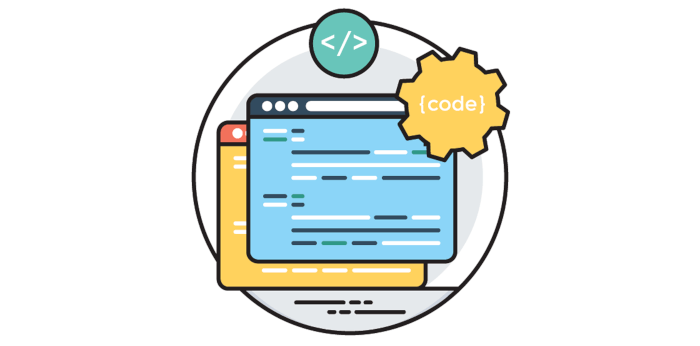Flask is a micro web framework written in Python based on the Werkzeug toolkit and Jinja2 template engine. It’s mature software with development commencing in 2010. It powers some of the most popular websites.
It’s a microframework intended for getting started very quickly as there’s very little boilerplate code for writing a simple app.
Flask is not a strictly “conventional” framework and relies partly on configuration files.
Features include:
- Contains development server and debugger. It’s recommended to use the flask command line utility; there’s also the option of using Flask.run().
- Integrated support for unit testing. Flask provides a way to test your application by exposing the Werkzeug test client and handling the context locals.
- RESTful request dispatching.
- Uses Jinja2 as its template engine. It’s fast, widely used and secure with the optional sandboxed template execution environment. It’s modelled after Django’s templates. with the default syntax of Jinja2 matching Django syntax in many respects.
- Sandboxed execution – used to evaluate untrusted code.
- Powerful automatic HTML escaping system for XSS prevention.
- Template inheritance – build a base “skeleton” template that contains all the common elements of a site and defines blocks that child templates can override.
- Compiles down to the optimal Python code just in time.
- Optional ahead-of-time template compilation.
- Easy to debug. Line numbers of exceptions directly point to the correct line in the template.
- Configurable syntax.
- Supports extensions that can add extra filters, tests, globals or even extend the parser.
- Integration into other tools such as frameworks, the Babel library or your favourite editor.
- Support for secure cookies (client side sessions).
- 100% Web Server Gateway Interface (WSGI) 1.0 compliant.
- Totally Unicode based when it comes to text.
- Uses thread-local objects internally.
- Flask-Login is an extension which allows you to integrate authentication system into your Flask application easily.
- Pluggable views – create views in the form of classes instead of normally as functions.
- Extensive documentation.
- Built-in integration of the click command line interface.
- Google App Engine compatibility.
- Many extensions are available that make adding new functionality easy.
Website: flask.pocoo.org
Support: GitHub Code Repository, Documentation, Flask Extensions
Developer: Armin Ronacher and contributors
License: BSD License
Flask is written in Python. Learn Python with our recommended free books and free tutorials.
Return to Python Microframeworks
| Popular series | |
|---|---|
| The largest compilation of the best free and open source software in the universe. Each article is supplied with a legendary ratings chart helping you to make informed decisions. | |
| Hundreds of in-depth reviews offering our unbiased and expert opinion on software. We offer helpful and impartial information. | |
| The Big List of Active Linux Distros is a large compilation of actively developed Linux distributions. | |
| Replace proprietary software with open source alternatives: Google, Microsoft, Apple, Adobe, IBM, Autodesk, Oracle, Atlassian, Corel, Cisco, Intuit, SAS, Progress, Salesforce, and Citrix | |
| Awesome Free Linux Games Tools showcases a series of tools that making gaming on Linux a more pleasurable experience. This is a new series. | |
| Machine Learning explores practical applications of machine learning and deep learning from a Linux perspective. We've written reviews of more than 40 self-hosted apps. All are free and open source. | |
| New to Linux? Read our Linux for Starters series. We start right at the basics and teach you everything you need to know to get started with Linux. | |
| Alternatives to popular CLI tools showcases essential tools that are modern replacements for core Linux utilities. | |
| Essential Linux system tools focuses on small, indispensable utilities, useful for system administrators as well as regular users. | |
| Linux utilities to maximise your productivity. Small, indispensable tools, useful for anyone running a Linux machine. | |
| Surveys popular streaming services from a Linux perspective: Amazon Music Unlimited, Myuzi, Spotify, Deezer, Tidal. | |
| Saving Money with Linux looks at how you can reduce your energy bills running Linux. | |
| Home computers became commonplace in the 1980s. Emulate home computers including the Commodore 64, Amiga, Atari ST, ZX81, Amstrad CPC, and ZX Spectrum. | |
| Now and Then examines how promising open source software fared over the years. It can be a bumpy ride. | |
| Linux at Home looks at a range of home activities where Linux can play its part, making the most of our time at home, keeping active and engaged. | |
| Linux Candy reveals the lighter side of Linux. Have some fun and escape from the daily drudgery. | |
| Getting Started with Docker helps you master Docker, a set of platform as a service products that delivers software in packages called containers. | |
| Best Free Android Apps. We showcase free Android apps that are definitely worth downloading. There's a strict eligibility criteria for inclusion in this series. | |
| These best free books accelerate your learning of every programming language. Learn a new language today! | |
| These free tutorials offer the perfect tonic to our free programming books series. | |
| Linux Around The World showcases usergroups that are relevant to Linux enthusiasts. Great ways to meet up with fellow enthusiasts. | |
| Stars and Stripes is an occasional series looking at the impact of Linux in the USA. | |
